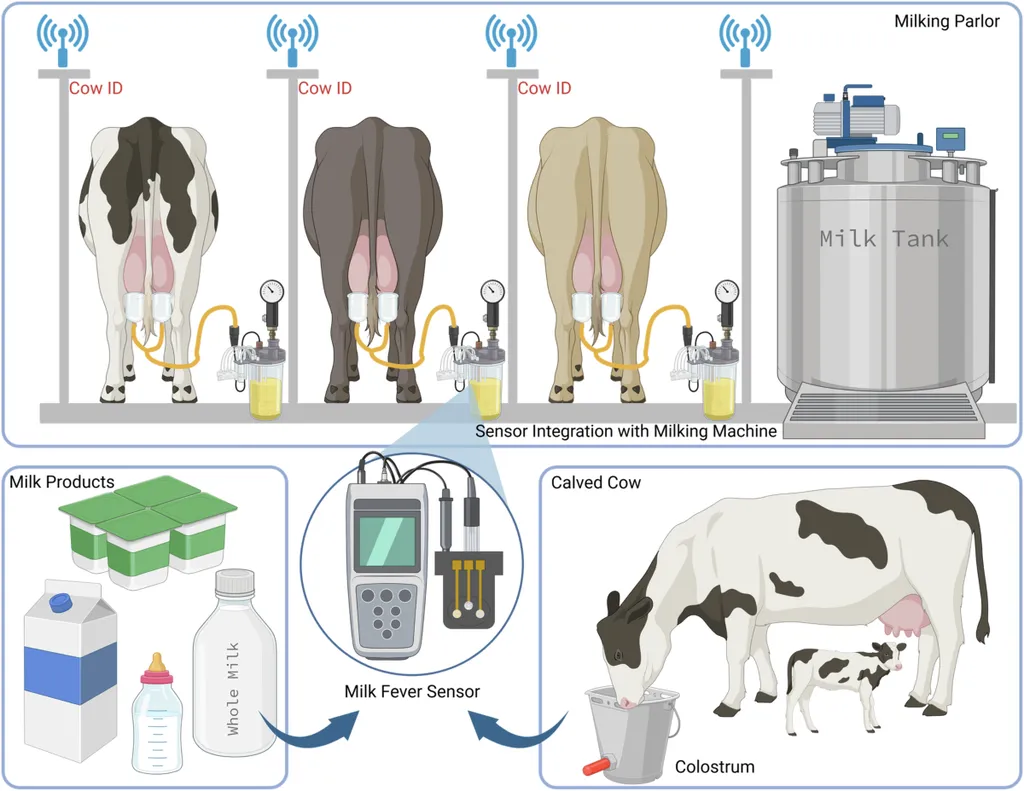In the heart of Virginia, researchers are pioneering a technological revolution that could redefine livestock management and bolster agricultural resilience. Md. Azahar Ali, a scientist at the School of Animal Sciences at Virginia Tech, is leading a charge to integrate advanced manufacturing techniques with electrochemical biosensors to create wearable, 3D-printed biosensors for livestock health monitoring. This innovation, detailed in a recent study published in the IEEE Open Journal of Instrumentation and Measurement (translated to English as the IEEE Open Journal of Measurement and Instrumentation), could significantly impact global food production and animal welfare.
The global food demand is escalating, and with it, the need for efficient, sustainable, and humane livestock management practices. Traditional methods of health monitoring often lag, leading to delayed disease detection and intervention. Ali and his team are tackling this challenge head-on by developing wearable biosensors that provide real-time health data. “These biosensors are not just about monitoring; they’re about empowerment,” Ali explains. “They empower farmers and livestock managers with data-driven insights, enabling them to make informed decisions promptly.”
The biosensors, manufactured using advanced 3D printing techniques, are designed to be customizable, user-friendly, and cost-effective. They are equipped with electrochemical sensors that can detect various health parameters, from pH levels to disease markers. The integration of artificial intelligence further enhances their capability, allowing for predictive analytics and early disease detection.
The potential commercial impacts of this research are substantial. For the agricultural sector, these biosensors could lead to increased productivity, reduced veterinary costs, and improved animal welfare. Early disease detection can prevent outbreaks, minimizing economic losses and ensuring food safety. Moreover, the data collected can be used to optimize feeding strategies, breeding programs, and overall farm management, leading to more sustainable and efficient operations.
Beyond agriculture, the energy sector could also benefit from this innovation. Livestock farming, particularly in developing countries, often relies on traditional methods that are energy-intensive and environmentally harmful. By adopting these advanced biosensors, farms can reduce their energy consumption and carbon footprint, contributing to a more sustainable future.
The research also highlights the challenges that impede the widespread adoption of these technologies, such as the need for further miniaturization, improved sensor stability, and enhanced data transmission capabilities. However, the team is optimistic about the future. “We are at the cusp of a technological revolution in agriculture,” Ali states. “With continued research and development, these biosensors could become as commonplace as smartphones, transforming the way we manage livestock and ensuring food security for generations to come.”
As we stand on the brink of this agricultural revolution, the work of Ali and his team serves as a beacon of innovation, illuminating the path towards a future where technology and agriculture intersect to create a more sustainable, efficient, and humane world. The study, published in the IEEE Open Journal of Measurement and Instrumentation, is a testament to the power of interdisciplinary research and the potential of advanced manufacturing techniques to revolutionize traditional industries.

